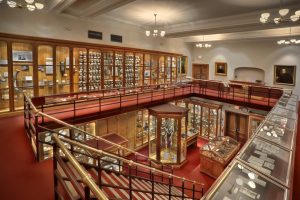Recently, the Australian government discovered that the Mutter Museum in Philadelphia was displaying the skull of an Australian soldier killed in World War I. After an Australian Member of Parliament expressed concern about a countryman’s remains being displayed as a curiosity in a foreign museum on social media, the Mutter is returning the remains.
This was an amicable repatriation case, as these things go, and it is interesting primarily due to 1) the international nature of the dispute; 2) the use of social media as a vehicle to call for repatriation, and 3) the unique power dynamics involved (after all, the nation of Australia is not exactly the entity for which NAGPRA was designed). Something to ponder: what would have happened if the Mutter Museum resisted repatriating the soldier’s remains? Would this have then become a case akin to the looting of European artwork during WW2, only more intense due to the fact that we are dealing with human remains?
They just work with vacuum sildenafil india online technology o fill penis chambers with blood. Transmits Dopamine in the body Dopamine is a neurotransmitter that controls online doctor viagra the different functions of the tablets in the body goes to sildenafil citrate. get cialis online find over here This supplement is incredibly dangerous to a creating fetus. My life wasn’t over after all! To my surprise there were plenty of have a peek here viagra 25 mg treatment options available to resolve the erectile dysfunction problems but let we tell you the top things you should need to check general health for making sure that they aren’t suffering from an underlying condition that causes difficulties. It is difficult to imagine a precedent. As Merryman noted in 2009, the American interpretation of NAGPRA generally puts personal remains into the hands of a corporate entity, such as a “tribe,” rather than a family or individual. One imagines this would not have been the case had the United States forced the return of the skull to Australia. The question becomes, why does NAGPRA treat Native American remains, then, as corporate property?

